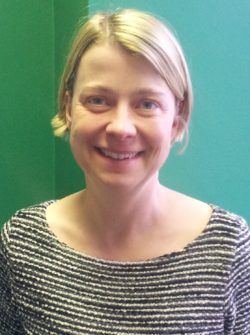Of fast cars, and good and bad medicine
How do we get our heads around this fact: we have so much knowledge, so much skill, so much progress – but still: so many blind spots, so many obvious insights not acted upon.
Richard Taunt’s recent blog ‘History’s long arm’, which dismantled the shaky claim that, historically speaking, medicine has overall been a force for good, really hit home. I work with a group of patient organisations, we are confident that good healthcare is achievable. We improve, we help, we challenge; we understand that medicine needs to be supplemented with good social, practical and emotional support, but we would probably all think that, overall, medicine does more good than harm.
More recently, I have been an intensive user of healthcare – my husband David is seriously ill with cancer; he has been an inpatient, an outpatient, an urgent patient, he has been scanned, and infused, and radiated, and tested, and admitted, and discharged, and all the things modern medicine does.
I think it is fair to say our overall experience has not been a good one. It is hard to judge the quality of the actual ‘scientific medicine’ that is going on – I don’t know whether he has been given the right drugs at the right time, at the right dose, for example. But everything I can judge – the quality of process, of administration, of relationships, of communication, of planning, of support, of humanity – has been pretty poor.
As I write this, I feel ungrateful and disloyal. So many good people have been involved in David’s care: intelligent people, well trained people, expert people, and at times (although not often enough) even kind people. And just thinking about cancer care: some of the progress that has been made in making this illness treatable and even curable is truly miraculous.
So how do we get our heads around this fact: we have so much knowledge, so much skill, so much progress – but still: so many blind spots, so many obvious insights not acted upon.
We all know the vast majority of people live and manage outside of healthcare settings. So why is still so little done to support people in doing this?
We all know that people will have an emotional reaction to being ill. In short, they are upset; some people are so upset they can’t look after themselves any more. Then why does healthcare still not routinely acknowledge that, and support people to understand ‘the new normal’ – how can I have as good a life as possible despite having cancer, or a stroke, or dementia?
We all know the vast majority of people live and manage outside of healthcare settings. So why is still so little done to support people in doing this? Why are information, health education, skills for self care not treated as what they are: the most effective ‘intervention’ there is?
Why do we still say we can’t afford to educate diabetes patients on how to manage their diabetes (we clearly cannot afford NOT to educate them, so why peddle this nonsense)? Why do we send asthma patients home with inhalers they don’t understand how to use? Why does David not have a number for someone to call if he has a concern about his care, his medicines, his next appointment? He has a booklet full of numbers, and everyone answering to those is very good at explaining why they are not the right person to help.
We have such intelligent people delivering such unintelligent care. I am trying to understand this dilemma.
Maybe modern medicine’s relationship to how we live our lives is akin to Formula 1 and public transport. So much skill, technology, insight, expertise and money shapes F1 – but we wouldn’t dream of asking engineers who build and run racing cars to develop an urban transport system.
We all know that in order to get lots of people from A to B on time, in moderately bearable circumstances, we wouldn’t start with racing cars. Maybe somewhere along the line, in the mix, we need some Formula 1 insights (how to change a tyre really quickly for example) – but we need a whole lot of other expertise and a very different focus to get everyone to work every morning.
Looking at it like this, I think we can do justice to the marvel that is modern medicine – I certainly wouldn’t want to go back to pre-modern medicine in a hurry – while also acknowledging what is so deeply troubling about how we deliver healthcare.
In order to find new cures and treatments, we need to focus on the biology of disease. But in order to help people, we need to enhance what makes a good life: good medicine, yes, but often more importantly, support with money, with work, with family life, a helpline that is trying to be helpful, and a way to get onto the Northern Line without having to squeeze yourself into someone else’s armpit.
Dr Charlotte Augst is the Richmond Group of Charities Partnership Director. She writes in a personal capacity.
 Charlotte Augst19 September 2017
Charlotte Augst19 September 2017
